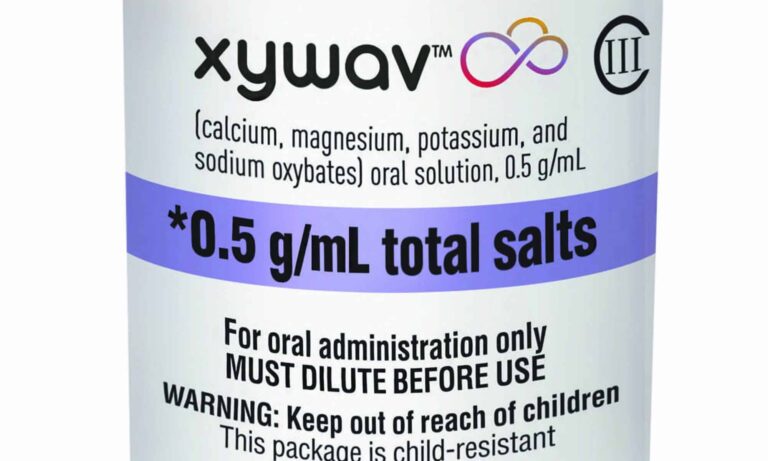Can Modafinil Help Manage Delayed Sleep–Wake Phase Disorder (DSWPD)?
Delayed Sleep–Wake Phase Disorder (DSWPD), also called Delayed Sleep Phase Disorder (DSPD), is a circadian rhythm disorder where an individual’s sleep schedule is shifted two or more hours later than conventional times. This makes it difficult to fall asleep before midnight and equally hard to wake up in the morning for work, school, or social obligations (Nesbitt, 2018). While treatments like light therapy and melatonin aim to realign the body clock, some individuals continue to struggle with severe morning sleepiness. In such cases, Modafinil, a wake-promoting medication, is sometimes considered as an off-label option to improve daytime alertness.
Understanding Delayed Sleep–Wake Phase Disorder
People with DSWPD experience sleep onset that is delayed by several hours compared to the societal norm. They often cannot fall asleep until very late at night and struggle to wake up early in the morning. On free days, their sleep is normal in duration and quality, just shifted later (Nesbitt, 2018).
Prevalence:
- Around 3% of adolescents and young adults meet diagnostic criteria for DSWPD (Futenma et al., 2023).
- The condition is particularly common during teenage years but may persist into adulthood (Nesbitt, 2018).
Consequences:
- Chronic fatigue
- School and work absenteeism
- Poor concentration and mood problems
- Higher rates of depression and anxiety in those with DSWPD (Futenma et al., 2023)
Current Standard Treatments
The main goal in treating DSWPD is to realign the circadian rhythm with social demands.
- Light therapy: Exposure to bright light in the early morning helps shift the sleep phase earlier.
- Melatonin: Taken several hours before bedtime, it can advance the circadian clock.
- Behavioral approaches: Maintaining consistent sleep schedules and limiting late-night light exposure are essential.
- Cognitive-behavioral therapy (CBT): Particularly helpful for patients with comorbid psychiatric conditions (Futenma et al., 2023).
These approaches remain the first-line treatments for DSWPD.
How Modafinil Works
Mechanism:
Modafinil promotes wakefulness through effects on neurotransmitters such as dopamine, norepinephrine, histamine, and orexin, though the exact mechanism is not fully understood (Greenblatt & Adams, 2025).
Approved uses:
The FDA has approved Modafinil for:
- Narcolepsy
- Obstructive sleep apnea with residual sleepiness
- Shift-work disorder (FDA, 2015)
Off-label role in DSWPD:
- May reduce daytime sleepiness in patients who cannot align their schedules with social demands.
- Does not advance the circadian rhythm; it treats symptoms, not the underlying disorder (Nesbitt, 2018; Greenblatt & Adams, 2025).
Risks and Safety Considerations
Common side effects:
- Headache
- Nausea
- Anxiety
- Insomnia (FDA, 2015)
Serious risks (rare):
- Severe skin reactions (e.g., Stevens–Johnson syndrome)
- Psychiatric symptoms (mania, hallucinations, suicidal ideation)
- Cardiovascular complications (FDA, 2015)
Drug interactions:
- Modafinil induces CYP3A4, reducing the effectiveness of hormonal contraceptives for up to one month after discontinuation (FDA, 2015).
Abuse potential:
- Classified as a Schedule IV controlled substance due to risk of misuse, though the potential is lower than with amphetamines (Greenblatt & Adams, 2025).
Comparing Modafinil With Other Wake-Promoting Agents
- Amphetamines/methylphenidate: Stronger stimulants, more side effects, higher abuse risk.
- Modafinil: Produces steadier alertness, fewer mood swings, and lower misuse potential (Greenblatt & Adams, 2025).
Still, none of these agents reset the circadian clock; they only manage wakefulness.
Integrating Modafinil Into a DSWPD Plan
If considered, Modafinil should be:
- Prescribed only under specialist supervision.
- Taken early in the morning (typically 100–200 mg), to avoid worsening nighttime insomnia (Greenblatt & Adams, 2025).
- Used in combination with phase-shifting therapies (light, melatonin, behavioral strategies) for long-term improvement.
Conclusion
Modafinil can be a valuable adjunctive tool for people with DSWPD who suffer from disabling daytime sleepiness. However, it is not a cure and does not correct the delayed circadian rhythm. The foundation of treatment remains light therapy, melatonin, and behavioral approaches, with Modafinil reserved for cases where daytime functioning is severely impaired.
References
- U.S. Food and Drug Administration. (2015). PROVIGIL® (modafinil) tablets, for oral use, C-IV [Prescribing information]. U.S. Department of Health and Human Services. https://www.accessdata.fda.gov/drugsatfda_docs/label/2015/020717s037s038lbl.pdf
- Greenblatt, K., & Adams, N. (2025). Modafinil. In StatPearls [Internet]. StatPearls Publishing. https://www.ncbi.nlm.nih.gov/books/NBK531476/
- Nesbitt, A. D. (2018). Delayed sleep-wake phase disorder. Journal of Thoracic Disease, 10(Suppl 1), S103–S111. https://doi.org/10.21037/jtd.2018.01.11
- Futenma, K., Takaesu, Y., Komada, Y., Shimura, A., Okajima, I., Matsui, K., Tanioka, K., & Inoue, Y. (2023). Delayed sleep-wake phase disorder and its related sleep behaviors in the young generation. Frontiers in Psychiatry, 14, 1174719. https://doi.org/10.3389/fpsyt.2023.1174719








